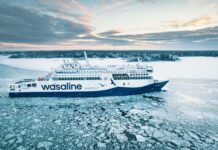Singapore-based China Navigation Company (CNCo) is linking with academia for research into a cost-effective vessel concept with a low carbon footprint suited to the South Pacific island economies.
Operator of a modern fleet of multipurpose cargo ships, container vessels and bulk carriers, and with an extensive liner-type service network encompassing the region, CNCo – the parent of Swire Shipping and Swire Bulk – has signed a memorandum of agreement with the University of the South Pacific (USP) in Fiji to explore practical options for small general cargo vessels producing fewer emissions. The partners in the endeavour, dubbed Project Cerulean, will undertake feasibility studies for a new generation of ships that would be within the economic reach of the island nations involved.
The ultimate objective is the development of a new class of small cargo vessel which, once proven to be commercially viable to build and operate, can be scaled-up in numbers to provide a cost-effective solution for currently marginalised and remote Pacific Island Communities and Territories (PICT). The PICT designation that refers to the island groups of Melanesia, Micronesia and Polynesia.
In the immediate term, the project aims to design, build and trial a low-carbon Project Ship to service the PICT region. This work will be carried out in partnership with USP’s Micronesian Centre for Sustainable Transport (MCST).
Simon Bennett, CNCo’s general manager in charge of sustainable development, said that the company was looking towards an initial investment of around US$2.5m in the scheme, and expressed the hope that construction of a pilot “low cost, low carbon and low tech freighter” could take place in a South Pacific shipyard.
Read more on The Motorship.




